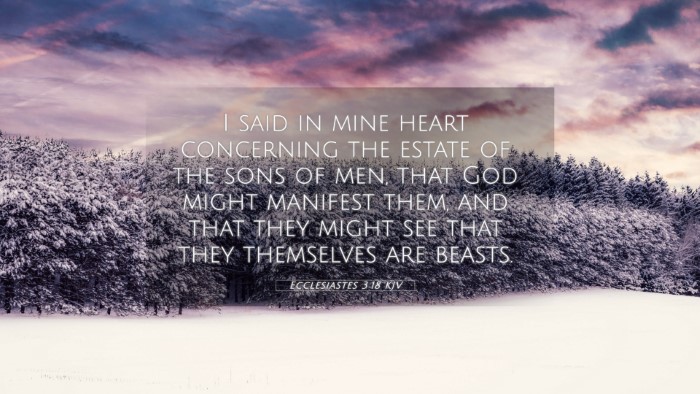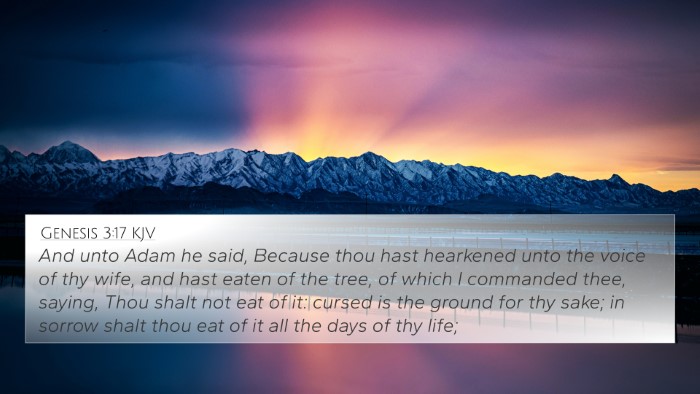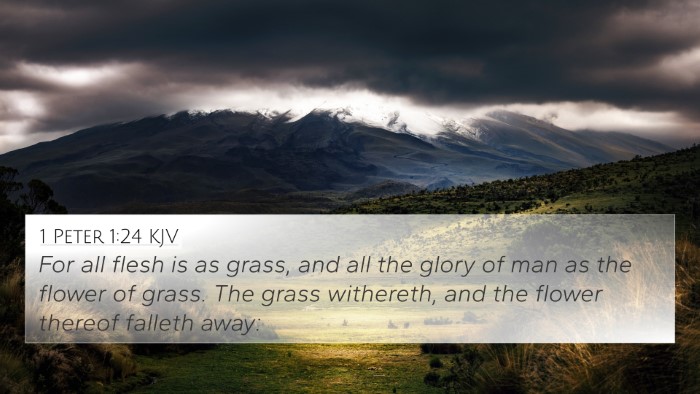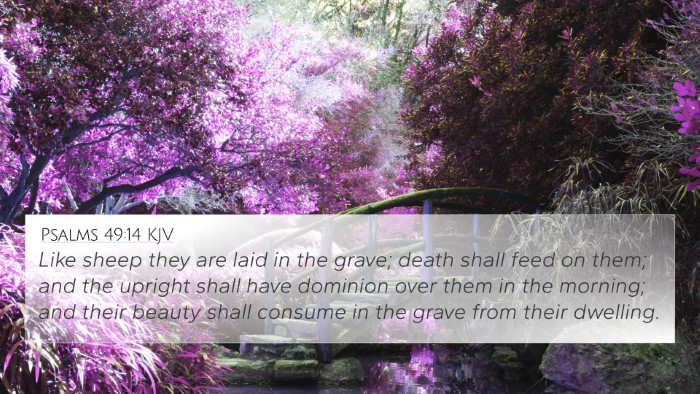Understanding Ecclesiastes 3:18
Ecclesiastes 3:18 states, "I said in my heart concerning the condition of the sons of men, ‘God tests them that they may see that they themselves are like animals.'" This verse presents a profound observation about human nature and the divine purposes behind the experiences of life. The following commentary portrays a composite understanding based on insights from public domain sources.
Insights from Public Domain Commentaries
-
Matthew Henry:
Henry emphasizes the observation that God allows all people to experience certain trials, which reveal their true nature. He argues that humanity is often like beasts in its natural state, driven by instinct rather than divine purpose. This verse serves as a reminder of our mortality and the fleeting nature of human life, prompting a contemplation of the soul's eternal significance.
-
Albert Barnes:
Barnes interprets the testing by God as a way to demonstrate the inherent limitations of mankind. He suggests that these tests are designed to help individuals recognize their dependence on God, thus pushing them towards the understanding that life is more than just earthly existence. His commentary highlights the need for a more profound spiritual awakening among individuals.
-
Adam Clarke:
Clarke expands on the idea of human beings being tested to see their likeness to animals, noting that both are subject to the same fate of death. This view suggests that God's purpose in testing humanity is not punitive but rather educational, fostering a deeper understanding of life’s temporary nature and the importance of seeking higher spiritual truths.
Thematic Connections and Cross-References
This verse opens pathways to various themes within Scripture, allowing for comparative Bible verse analysis. Below are some connections made through cross-referencing Biblical texts:
- Psalm 49:12: "But man, despite his riches, does not endure; he is like the beasts that perish." This verse parallels the idea of the impermanence of life shared in Ecclesiastes 3:18.
- Isaiah 40:6-7: "All men are like grass, and all their glory is like the flowers of the field; the grass withers and the flowers fall." Here, the Bible compares humanity to nature, reinforcing the transitory state of life.
- 1 Peter 1:24: "For 'All men are like grass, and all their glory is like the flowers of the field; the grass withers and the flowers fall.'" This New Testament reference echoes the themes found in Ecclesiastes.
- James 4:14: "What is your life? You are a mist that appears for a little while and then vanishes." This message resonates with the futility observed in human life and the focus on the eternal.
- Hebrews 9:27: "Just as people are destined to die once, and after that to face judgment." This reinforces the inevitability of death, a key point in understanding Ecclesiastes 3:18.
- Luke 12:22-23: "Then Jesus said to his disciples: ‘Therefore I tell you, do not worry about your life, what you will eat; or about your body, what you will wear. For life is more than food, and the body more than clothes.’" This frames the context in which one should not focus solely on earthly concerns.
- Galatians 6:7-8: "Do not be deceived: God cannot be mocked. A man reaps what he sows." This illustrates the idea of consequences and moral awareness in life beyond physical existence.
Practical Applications and Tools for Study
Understanding Ecclesiastes 3:18 in the context of cross-referencing and thematic analysis offers various practical applications for personal reflection and study. Some approaches include:
- Bible Concordance: Utilize a Bible concordance to find verses related to life and death, enabling deeper study into the themes presented in Ecclesiastes.
- Cross-Reference Bible Study: Engage in cross-reference Bible study using tools that highlight connections between different scriptural passages, reinforcing the ideas presented in the text.
- Bible Reference Resources: Use Bible reference resources to assist in understanding the historical and cultural context of the passages and enhance comprehension.
- Comparative Study of Pauline Epistles: Look for relatable themes between Ecclesiastes and the teachings found in the epistles, particularly regarding life management and faith.
- Inter-Biblical Dialogue: Reflect on how various books of the Bible dialogue with one another, providing a holistic understanding of Biblical theology.
Conclusion
Ecclesiastes 3:18 serves as a poignant reminder of the limitations of humanity and the significance of seeking deeper spiritual insights amid life's trials. By employing tools for Bible cross-referencing and engaging in thematic Bible verse connections, one can enrich their understanding of this passage and its implications. This comprehensive exploration emphasizes the interconnectedness of scripture and encourages a thoughtful approach to Bible study.


















